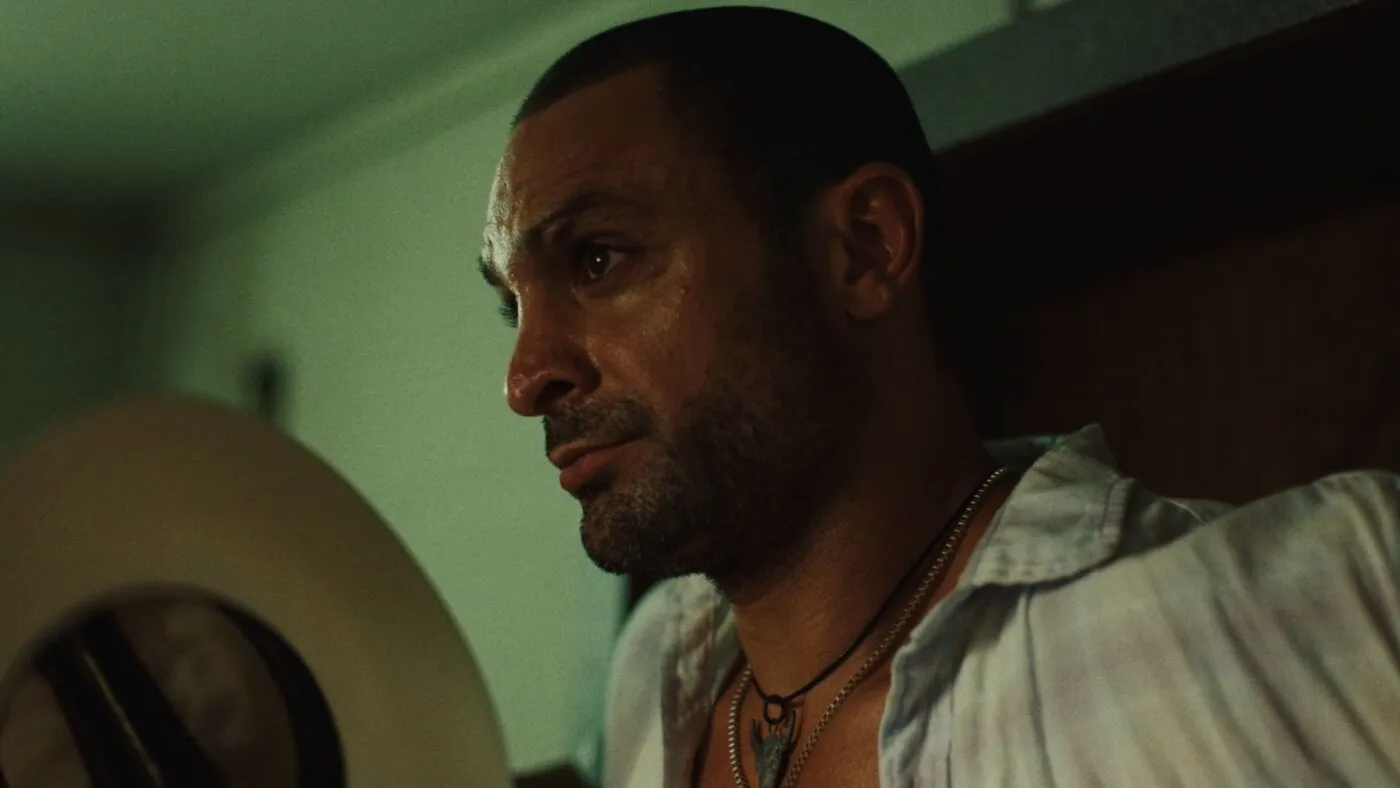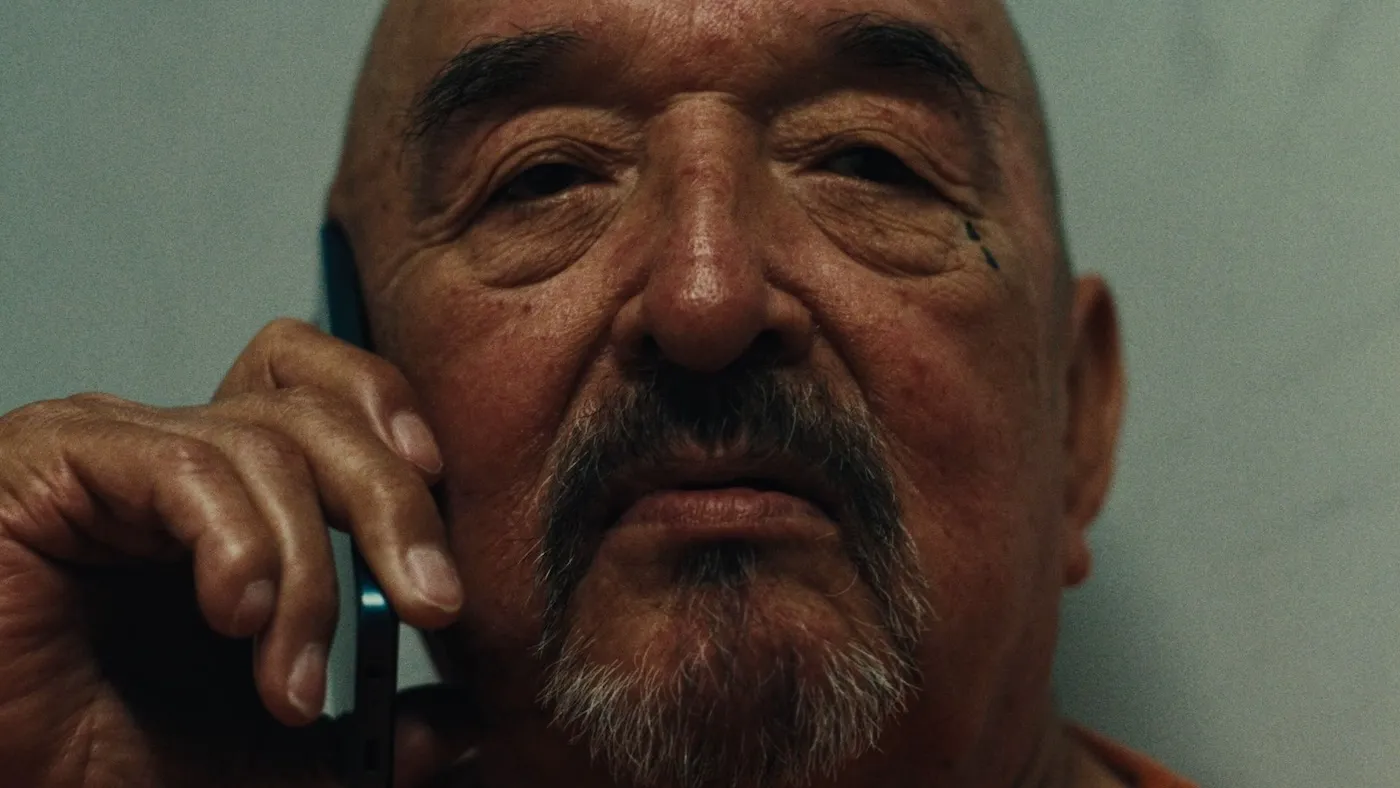John Swab’s new crime thriller King Ivory seeks to shine a light on the very real human toll of America’s ongoing opioid crisis. Based on extensive research, including interviews with those on the frontlines and those suffering personal battles, Swab crafts a brutally honest portrait of how this public health calamity has ravaged communities across the country.
We meet Tulsa police officer James Badge Dale, who is determined to take down the dealers flooding his city with deadly fentanyl. But in a twist known all too well these days, his own teenage son becomes hooked, showing how easily even the most cautious families can fall victim.
Beyond the police procedure and gritty action scenes, King Ivory aims to put faces to the statistics. We witness the human consequences of an epidemic that claims over 100,000 lives each year. Swab ensures we experience the story from all perspectives—from the street-level dealing to the law enforcement cracking down to the suffering of those unable to escape addiction’s grip.
And in portraying this complexity, the director draws directly from his own past battle with substance abuse to lend the film an undeniable authenticity. Through intertwining characters and incidents both fictional and grounded in lived experiences, King Ivory shines a light on this public health crisis in a raw, revealing manner that might help more people understand its far-reaching impact.
Interweaving Struggles
The gritty crime thriller King Ivory tells a story that’s all too real for many communities—the devastating impact of opioid addiction and those fighting back against the vicious drug trade profiting from lost lives. Director John Swab crafts an intense tale where these vital issues collide in heart-wrenching ways.
James Badge Dale plays Tulsa police officer Layne West, a man on a mission to clean up the mean streets. He leads a crack team targeting the sources flooding his city with deadly fentanyl. Layne’s investigation intersects with criminal operations on multiple fronts.
Within the prison walls, fearsome gang leader Holt (Graham Greene) calls the shots for the Indian Brotherhood from behind bars, working with his ruthless lieutenant Smiley (Ben Foster) to maintain a stranglehold over the local dealing scene. Meanwhile, a ruthless Mexican cartel overseen by Ramon (Michael Mando) ships caravan after caravan of the synthetic opioid across the border, endangering countless lives for profit.
It’s through one such shipment that a shocking discovery is made—dozens left for dead in an abandoned truck. The sole survivor, young Diego, is coerced by Ramon to become a trafficker himself, making long deliveries northward every day. As Layne fights this poison at its source, he’s blindsided to learn his own rebellious teen son Jack (Jasper Jones) has succumbed to addiction.
Swab powerfully shows how even the strongest of wills can shatter when gripped by dependency’s claws. And as each of these interweaving storylines builds to a climactic, heart-pounding confrontation, King Ivory highlights how this public health crisis ensnares ordinary lives from every angle, demanding change through raised awareness and compassionate solutions.
Crafting Gritty Immersion
Director John Swab aims to give viewers a visceral trip to the heart of darkness in King Ivory. No stranger to gritty genres himself, Swab ensures we live within the story through gripping visual choices. Cinematographer Will Stone pairs handheld cameras with propulsive editing by Andrew Aaronson, keeping audiences constantly moving through this bleak criminal landscape.
The restless camerawork and rapid cuts maintain an intense pace that pulls us headfirst into Tulsa’s mean streets. While some find this “shaky- camera” dizzying at first, it cleverly places us on the frontlines alongside officers as bullets fly. Later, we share addicts’ distracted scrambles for their next fix just as vividly. It’s a jaw-dropping immersive experience unlike any other crime thriller.
Within this bleak world Swab crafts, several shootout set pieces smash expectations with you-are-there realism. A grocery store gun battle amid fluorescent lights shocks with grisly brutality laid bare. Likewise, a later motel mayhem scene plunges viewers into a war zone, frenzied bullets tearing through walls and people alike. These ruthless sequences don’t glorify violence but transport us to each character’s desperate reality.
While some performances lack depth, Swab undeniably triumphs at drawing us inside intense circumstances. We shudder at every trigger pull alongside his characters, losing ourselves in their criminal milieu despite narrative flaws. In prioritizing visceral transport over seamless acting, King Ivory succeeds in lingering long after as a distressingly vivid world disappears from view. For better or worse, Swab’s direction burrows audiences disturbingly deep.
Laying Bare a Public Health Crisis
King Ivory aims to shine a harsh light on North America’s raging opioid disaster. No stranger to such struggles himself, John Swab presents a raw glimpse of fentanyl’s damage without reprieve. His unblinking tribute leaves viewers absorbing trauma’s ripples across society.
Swab ensures we see the crisis from numerous vantage points. Cops like Layne race the trade while communities sink under grief and hospital bills. Cartels profit coldly from addict communities left desperate. Families stand helpless against dependency’s crushing grip.
Yet Swab also depicts a vexing enemy morphing beyond any campaign’s reach. Just as policy targets heroin, dealers debut pills and powders, luring new victims deeper into the abyss. No tactic slows rising death tolls as politicians grapple for solutions.
While some story beats feel formulaic against such a complex subject, Swab awakens understanding by confronting viewers with unrelenting bleakness. His message that solutions remain elusive despite valiant battles with drug rings may frustrate audiences craving neat resolution. But by treating this sensitive issue with commendable bluntness, King Ivory shakes complacency and honors those still fighting the fight. Ultimately, Swab challenges viewers to recognize society’s shared duty in healing over harm.
Fleshing Out the Faces Behind the Crisis
Within King Ivory’s gritty criminal underworld, a few characters stand out as vividly drawn. Ben Foster sinks his teeth into the role of cold-blooded Smiley, relying solely on an eerie voicebox to communicate. Melissa Leo also shines as his brash, unpredictable mother figure.
These complex leads immerse us in their respective desperation and dysfunction. But some roles feel less fully explored. Graham Greene and Michael Mando play intrinsically in minor antagonists, their humanity obscured by one-note traits.
Swab missed chances to resonate on a deeper human level. Taking more time with James Badge Dale’s cop grappling with his son’s addiction could have amplified the film’s emotional impact. As it stands, the teenage addict seems more of a plot device than a three-dimensional young man.
Fleshing out characters like these may have strengthened King Ivory’s message on real-world costs. When individuals become little more than archetypes, it’s harder to recognize our shared stake in combating such widespread tragedy.
Complex portraits invite us into others’ experiences, fostering empathy that could drive positive change. The director holds an intimate understanding of addiction’s grip, giving him an opportunity to bring multifaceted light to those suffering its thrall. While some performances shine, lingering with more humanizing details across the board may have made this harrowing story resonate long after the final frame.
Facing Hard Truths Through Gritty Cinema
King Ivory takes on a subject demanding utmost care and sensitivity. While authentic efforts to shine much-needed light on America’s opioid disaster deserve praise, John Swab’s film proves a mixed bag. By tasking gritty direction with transporting audiences into this bleak world, viewers receive a viscerally impactful dose of reality.
Yet ultimately, the addictive pull of propulsive action scenes overshadows chances to resonate on a deeper human level. Complex issues surrounding communities crippled by dependency deserve richly layered characters to mirror such nuance. When individuals become thinly written, urgent messages risk falling flat.
As a pulse-pounding crime thriller, King Ivory succeeds far more than most at keeping audiences on edge. But for a story aiming to shed light through unflinching portrayals of real-world struggles, superficial characters dilute chances to foster true understanding. Swab holds potential to do justice to his subject’s profound toll, yet this examination remains disappointingly limited.
While its stark cinematography ensures the film leaves imprints long after credits roll, King Ivory signifies missed opportunities to challenge preconceptions through multi-dimensional storytelling. In confronting America’s opioid plague, nuanced depictions of humanity’s shared stake could spur meaningful discussion on compassionate solutions, far beyond any shoot’em up’s grasp.
The Review
King Ivory
King Ivory delivers pulse-pounding action with unwavering glimpses into America's opioid epidemic; superficial characters undermine opportunities for meaningful social commentary on this urgent issue. Overall, the film passes muster primarily as a well-crafted thriller yet falls short of its potential to foster deeper understanding through nuanced storytelling.


















































